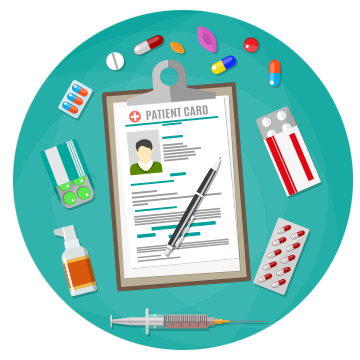Module 2: Basic Pharmacology of Controlled Drugs and Substances
Lesson 2
Cannabinoids – Adverse reactions and management
Patients may experience impaired short-term memory, fear, anxiety, and depression. Physical effects include impaired coordination, balance, rapid heartbeat, red eyes, dry mouth and throat (Canadian Pharmacists Association, 2014). THC impairs motor skills, especially when combined with alcohol. Other common side effects can include fatigue, dizziness, fainting, blurred vision, confusion, paranoia, anorexia, feeling drunk, and weakness (GW Pharmaceuticals Ltd., 2016).
An overdose severe enough to cause depression of consciousness should be treated with the same precautions used to manage an unconscious patient by securing the airway and monitoring vital signs. Patients experiencing depressive, hallucinatory, or psychotic reactions should be placed in a quiet area and offered reassurance (Canadian Pharmacists Association, 2014). The NP is encouraged to arrange safe transportation to a facility where the patient can be monitored.
Because of limited use of delta-9-tetrahydrocannabinol, cannabidiol oromucosal spray, side effect management strategies are limited. According to the manufacturer, stinging or discomfort in the mouth may be experienced if this agent is sprayed in the same place in the mouth on repeated occasions, and is usually overcome by varying the area in the mouth where it is sprayed. If unacceptable and unwanted effects occur, the dose of delta-9-tetrahydrocannabinol, cannabidiol oromucosal spray may need to be reduced or the interval between the doses lengthened (GW Pharmaceuticals Ltd., 2016).
References:
- Canadian Pharmacists Association. (2014). E-Therapeutics. Ottawa, ON: Author.
- GW Pharmaceuticals Ltd. (2016). Sativex in Canada. Retrieved from https://www.gwpharm.com/products-pipeline/sativex/prescriber-information/information-obtaining-sativex/sativex-canada
